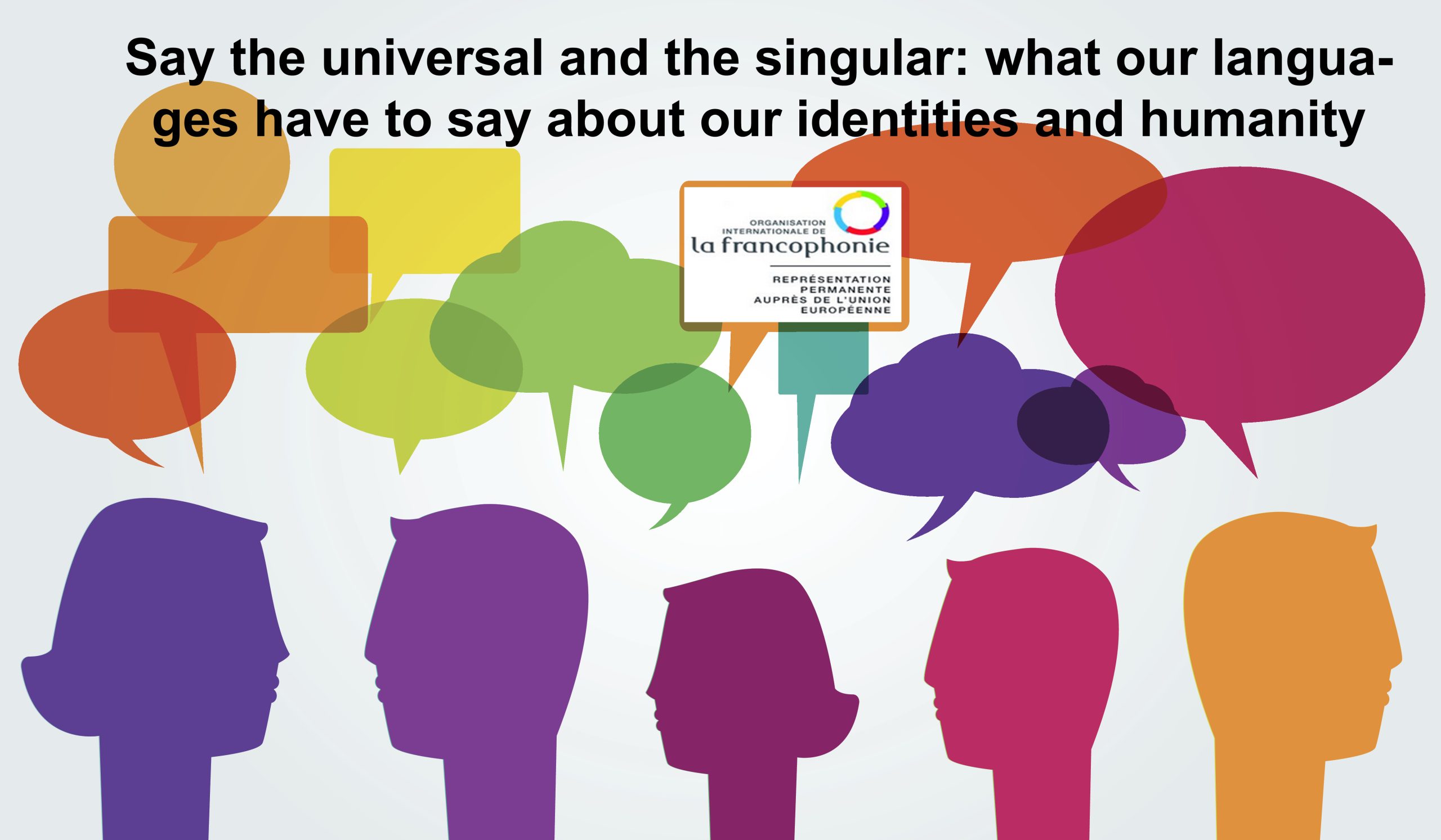The Permanent Representation of the International Organisation of La Francophonie to the EU and PubAffairs Bruxelles are pleased to present the project:
Proverbs, which can be defined as short statements related to a common popular knowledge, are often linked to specific cultural environments; however, they may assume a universal meaning regarding the fact that they sometimes express existential findings that unite people despite their culture, language, religion and environment.
They witness at the same time the differences and the similarities that make us a community as a whole. From this point of view, they are one of the most beautiful things related to the promotion and protection of cultural expression.
In a world, and inside European and international organisations, where the use of a single language is becoming increasingly dominant, sometimes creating more tensions and misunderstanding than mutual comprehension, it would be worth recognising what linguistic diversity can offer.
We invite you to contribute to expand a modest overview of this universal/singular dialectic by proposing equivalents in your native language, among the 24 official languages of the EU, of proverbs in French and English already listed.
This would require to write, under the proverb in English, the version in the language you chose, with its literal translation in English. You can send us an email at: [email protected] .
We selected several French proverbs which have an English equivalent and we would love you to send us the corresponding proverb in your own language. In recognition of the European multilingualism day the next 26th September, we will publish a book gathering all the answers received and will organize a conference presenting and promoting the stakes of multilingualism in the EU
To illustrate the concept, here is an example for the French proverb (observe the humorous comparisons)
English:
« You can’t have your cake and eat it too ».
French
« Vouloir le beurre et l’argent du beurre » ;
Wanting the butter and the money of the butter
German:
«Man kann nicht auf zwei Hochzeiten gleichzeitig tanzen».
You cannot dance in 2 marriages at the same time.
Italian:
« Non si può avere la botte piena e la moglie ubriaca».
You cannot have the barrel full and the wife drunk.
Spanish:
«No se puede estar en misa y repicando».
You cannot attend church and ring the bells.
Portuguese:
« Querer sol na eira e chuva no nabal».
Wanting the sun on the barn and the rain on the turnip field.
Polish:
« Wilk syty i owca cała ».
Having the wolf satisfied and the lamb in one piece.
Greek:
« Θέλει και την πίτα ολόκληρη και το σκύλο χορτάτο».
Wanting the whole pie and the dog satisfied.
Dutch:
«twee ruggen uit een varken willen snijden»
Wanting to take two backsides on a single pig.
Hungarian:
« Olyan nincs, hogy a kecske is jól lakjék és a káposzta is megmaradjon»
Wanting to save the goat and the cabbage at the same time.
Romanian:
A avea si slanina-n pod si buzele unse
Having bacon in the attic and greased lips.
Danish:
« Man kan ikke både blæse og have mel i munden».
You cannot blow while keeping the flour in your mouth.
Most likely, the proverbs we have chosen will have an equivalent in your language. Let us know! If you are aware of other proverbs with equivalents in more than one language, do not hesitate to suggest a new combination. You can send us an email at: [email protected] .
Here the list of selected proverbs:
- [EN] « A burnt child dreads the fire ».
Chat échaudé craint l’eau froide ;
- « One swallow doesn’t make a summer ».
[FR] Une hirondelle ne fait pas le printemps ;
- « A debt paid is a friend kept ».
[FR] Les bons comptes font les bons amis ;
- « Better the devil you know than the devil you don’t ».
[FR] On sait ce que l’on quitte, on ne sait pas ce que l’on prend ;
- «Birds of a feather flock together».
[FR] Qui se ressemble s’assemble ;
- «Better alone than in bad company ».
[FR] Mieux vaut être seul que mal accompagné ;
- «If want something doing, do it yourself ».
[FR] On n’est jamais mieux servi que par soi-même ;
- «You do not tech your grandmother to suck eggs »
On n’apprend pas à nager à un canard.
- «Where old age is evil, youth can learn no good ».
[FR] Si jeunesse savait, si vieillesse pouvait
We look forward to receving your answers!


